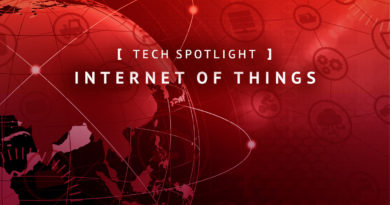VMware bundles support for the branch-of-one workforce

VMware has unveiled an integrated package of cloud security, access control and networking software aimed at addressing the key needs of today’s COVID-19-driven remote workforce.
VMware Anywhere Workspace brings together the company’s core enterprise software products, including its Workspace ONE unified endpoint management, Carbon Black Cloud cloud-native endpoint security, and secure access service edge (SASE) components, into a single system to support a widely distributed workforce.
“Enterprises are moving from simply supporting remote work to becoming distributed, anywhere organizations. Companies are rethinking where teams work, how they work, and how they support customers from wherever they are,” Sanjay Poonen, chief operating officer, customer operations with VMware, wrote in a blog about the announcement. “To be successful, this means investing in technology and a long-term strategy to be a stronger, more focused and more resilient organization.”
The Anywhere Workspace package, which is available now, brings together for the first time a number of newly integrated capabilities. For example, combining Carbon Black Cloud and Workspace ONE ties together physical and virtual endpoint management and security capabilities to safeguard end users’ mobile devices and cloud-hosted virtual desktops. In addition, the SASE services, including SD-WAN access and zero-trust security, bring secure remote access to cloud resources from anywhere.
The idea is to move security closer to where apps and data are located, as well as keep remote devices up to date, said Shawn Bass, VMware’s CTO of end-user computing.
Additional features, such as a cloud-access security broker and data-loss prevention support for the Anywhere Workspace package, will be forthcoming, Bass said.
“VMware has some unique and powerful capabilities here, all in one integrated package that end-users don’t have to stitch together themselves, making it very attractive right now,” said Lee Doyle, principal analyst at Doyle Research. “IT needs new, innovative ways to deal with the branch-of-one workforce, and this kind of offering is a good start.”
Remote work and the technologies needed to support those workers are evolving quickly.
A recent Computerworld article took a look at new technologies designed to keep remote employees connected and working productively. In addition to mainstays like Slack, Microsoft Teams, Zoom and Google Meet, there are start-ups and scale-ups working on innovative ways to connect workers.
Increasingly, collaboration isn’t just about team chat. People work together in countless ways, meaning the tools they now need will likely come in many shapes and sizes, Computerworld stated. There are a range of communication apps from which to choose: instant messaging, video and email, work-management tools to coordinate projects for teams, and collaborative productivity apps more tuned to teamwork than shuffling papers.
Moving forward, remote offices and branches will continue to be the focus of many IT teams, experts say. IDC says that post-COVID, more than 52% of workers will either remain remote or have an in-office/remote hybrid arrangement. That trend will push many enterprises to support a branch of one.
“Enterprises have to support a hybrid workforce and consider how LAN policies can extend to remote workers using branch-of-one architectures,” said Brad Casemore, research vice president with IDC’s data center and multicloud networks group, in a recent Network World article.
IDC research says branch-of-one architecture should support things like cloud-based enterprise-network policy management, visibility, monitoring and analytics of application performance and user experience, centralized security, and broadband or wireless backup.
READ MORE HERE


